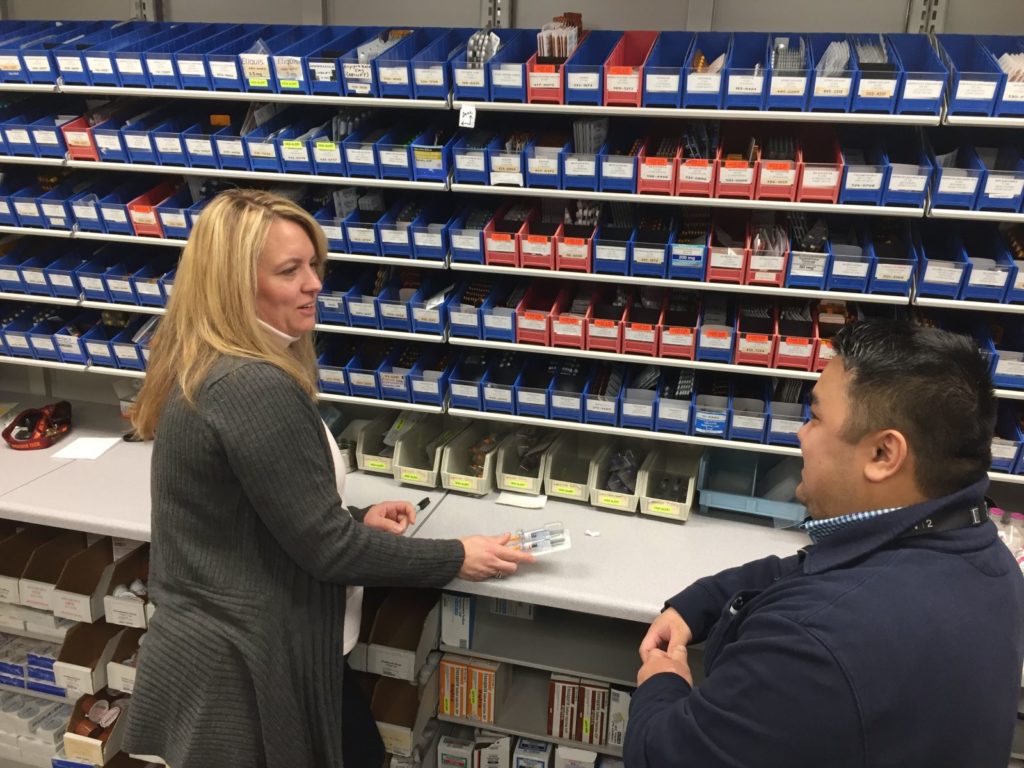More than any other healthcare professional, pharmacists have detailed knowledge of the phenomenal yin/yang nature of pharmaceuticals. Through advanced education and training, they understand that the overall effect of any medication depends on multiple factors.
Indeed, the vital role of the pharmacist as part of a healthcare team has been recognized and respected since ancient times. Interestingly, in mid-19th century Japan, the palace pharmacist was afforded a higher social ranking within the Imperial household than the Emperor’s own personal physicians.
Today, hospital-based pharmacists work directly and collaboratively with physicians to help ensure the appropriateness and accuracy of all prescribed medications. “To help ensure patient safety, our team of pharmacists check and verify every single medication prescribed for each patient in the hospital,” says Michelle Wilson, PharmD, Director of Pharmacy at Northern Hospital of Surry County. “The pharmacists review every physician-ordered prescription for appropriateness of dosage, timing and route of administration, and the possibility of negative interactions with other drugs or substances, such as food and drink. They also scan every patient for allergies. If they have any questions or concerns, the pharmacist contacts the physician before any medication is released,” she adds.
As part of their day-to-day duties, Wilson and the staff of 13 professionals — including Associate Director Hampton Hatcher, five clinical staff pharmacists, and six certified pharmacy technicians – are responsible for all aspects of ensuring that the right medicine reaches the right patient at the right time. “We take seriously our responsibility to provide high-quality care and help ensure patient safety – one patient at a time,” says Wilson.
With exacting precision, the Pharmacy staff counts pills, mixes and/or reconstitutes drugs for specialized needs, and carefully dispenses medications. “Although many medications are pre-mixed and pre-packaged by the manufacturer, there are other medications we need our pharmacy technicians to mix to meet the unique needs of a particular patient,” explains Wilson.
In addition, the pharmacists must estimate and order all medicines that will be needed by inpatients, rigorously monitor the inventory, and be available – 24 hours a day, seven days a week – to advise physicians and other members of the healthcare team about the optimal use of medicines. Except for individualized medications, most verified prescriptions are distributed to the hospital’s patient-care areas via a secure, sophisticated automated dispensing system, called Pyxis – where the locked drugs await pick-up by nurses who administer the drugs to patients. A tube-system – like the one used by banks for drive-thru encounters – may be used to fill “first orders” for patients who have just arrived on a particular floor.
Wilson notes that the hospital’s three levels of medication review are important for ensuring the safety of patients. “The process begins with the physician, who enters an order for a particular drug,” she explains.
“It then moves to the pharmacist, who must verify the order; and, finally, it ends with the nurse, who provides a final verification before administering the drug.”
Always interested in the health sciences, Wilson earned her Doctor of Pharmacy degree (PharmD) from Campbell University School of Pharmacy,in Buies Creek, North Carolina. After a brief stint as a pharmacist in the retail industry, she gained extensive clinical experience as a staff pharmacist for 20 years in another nearby hospital. In November 2016, she was appointed Director of Pharmacy at Northern Hospital. “I inherited a wonderful team … in a wonderful hospital,” she says appreciatively. “We are collectively committed to providing quality care in a safe and caring environment.”
Within the scope of her leadership role, Wilson is responsible for ensuring that the hospital Pharmacy meets and maintains all federal, state, and hospital regulatory requirements and protocols. At the present time, she is overseeing the planned renovation and expansion of the Pharmacy Department. “Like most other hospitals across the country, we are renovating our space to ensure compliance with new federal standards – to become effective in 2019 – that relate to the receipt of hazardous materials, such as chemotherapy agents.”
Outside the office, the active mother of two daughters (Elizabeth, a sophomore at Appalachian State University; and Kari, a junior in high-school) enjoys watching Virginia Tech football games and camping in the family RV. “Fortunately, my husband owns a travel agency, so he can conveniently plan exciting trips like the one we took to Alaska a few years ago,” she laughs.

Pharmacists Michelle Wilson (left) and Phil Vang review a patient medication order in the pharmacy at Northern Hospital.
